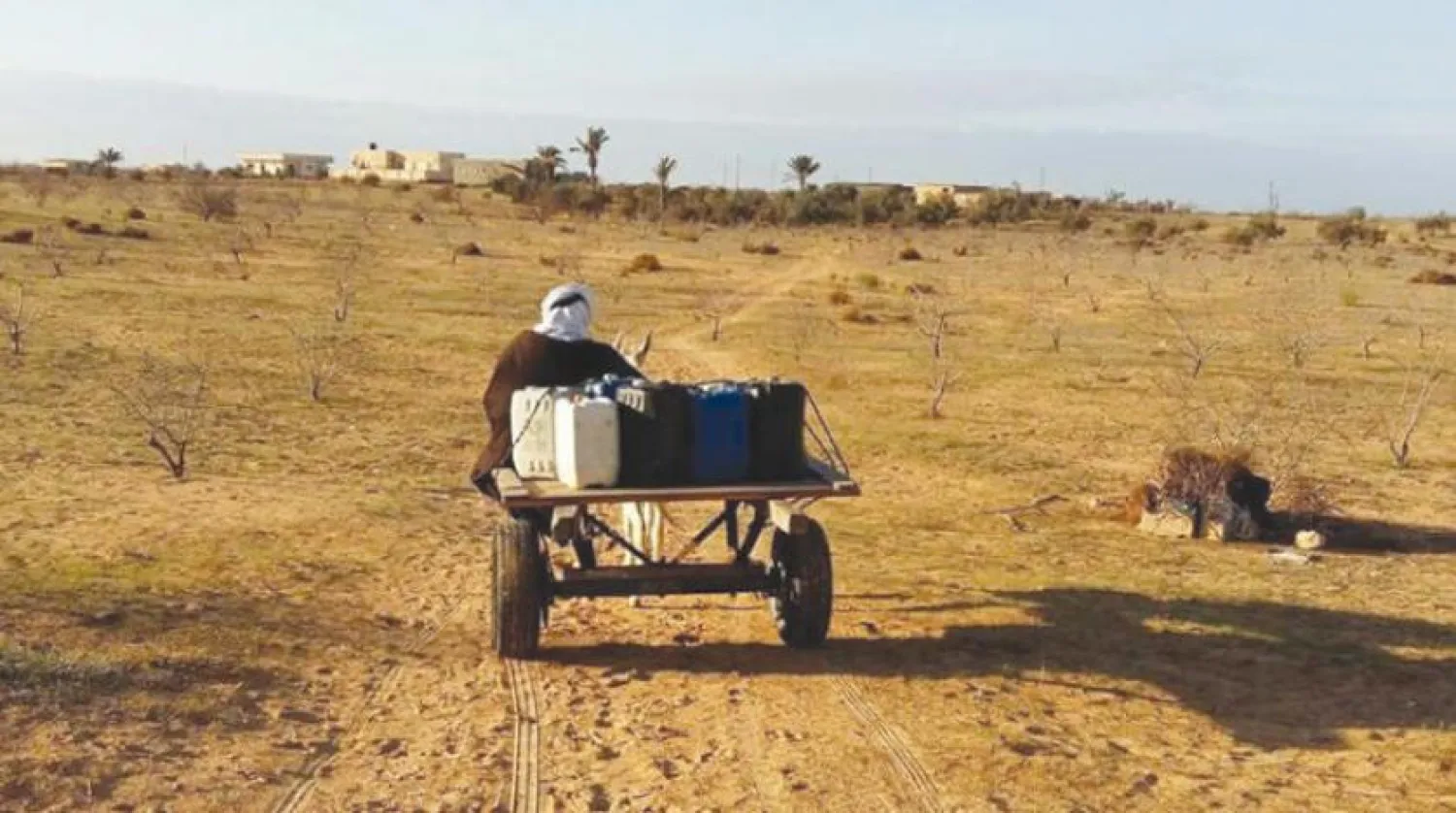The forty-year-old resident of North Sinai, Hasan Salem, tries to overcome his fear of the unknown by clinging to life on his own land. He rides his horse or walks 10 km from his house in al-Jura village, south of Sheikh Zuwaid, until he arrives at the nearest point where cars reach. From there, he looks for a pick-up truck ride to the market where he shops for his his family of five children and elderly parents.
Hasan's weekly route reflects the life of many residents of the village of Jura, located 15 kilometers south of the city of Sheikh Zuwaid. For years, the village has witnessed clashes pitting the army and police forces against terrorist groups, most members of ISIS– Sinai Province.
The on-going war continues in the northeastern part of the Sinai peninsula.
Salem is a member of the Sawarka, the largest tribe in Sinai, and his family along with 400 other families of about 3,000 men, women and children, still live in the villages of Abu al-Aaraj, Jura, and al-Dhahir in Sheikh Zuwaid. Others decided to move to safer areas inside Sinai and other provinces, fleeing war and persecution by ISIS militants, who accuse many of them of collaborating with Egyptian security forces.
According to the Information Center of North Sinai Governorate, the area of center Sheikh Zuwaid is 783 square kilometers, of North Sinai's total area of 27 thousand square kilometers, and the estimated population of the center is about 60,000 of the total population of North Sinai of 455,000 until 2016.
Official data between 2013 and mid -2017 estimated the number of displaced people following the war on terrorism in North Sinai about 6,700 families comprising more than 26,000 people.
Hassan Salem told Asharq Al-Awsat the real difficulties faced by those living in areas where police launched the war on terrorism began after they were totally isolated late 2016.
"We will not leave our villages. We live on a land surrounded by death from all sides, but we are happy that we are a faction of steadfast people in North Sinai. I say this despite the suffering from simple matters such as going to the market ... to bring the necessities for the family from Sheikh Zuwaid," confirmed Salem.
Salem pointed a sudden illness or a woman going into early labor are the most excruciating.
He explained that at night time villagers have to wait till dawn and then travel to the nearest road used by cars.
"Cars, vehicles, and any kind of motorcycles are banned in our areas. They come under fire when spotted," added Salem.
Another issue for North Sinai residents is education. Salem explained that the village's schools are operating with only four teachers, adding that it is difficult to bring staff from outside the village because of the difficult conditions.
Haj Ali Mohamad, a farmer from al-Jura in his fifties, tells Asharq Al-Awsat of the electricity problem.
"The main station is located in Sheikh Zuwaid.Every now and then there are power cuts because of the terrorist attacks," said Mohamad.
The transportation problem also causes a water crisis.
Haj Ali Mohamad said that, he and other farmers, have been warned by ISIS not to tend to their olive and plum trees.
"It turns out that they planted the lands with explosives and mines," he added.
Al-Dhahir, like its neighbor Jura, is about 13 kilometers south of Sheikh Zuwaid and home to about 60 families.
Ahmed Abu Salmi, 20, explains that the villagers managed to operate two schools, one elementary and the other preparatory, and a nursery.
The schools now operate in the village council after a number of armed men destroyed the previous school and detonated it using explosive devices.
The situation is not that different at a third nearby village, Abu al-Aaraj. However, Abu al-Aaraj is close to the road and last checkpoint which allows the cars to pass.
According to a resident, Sameh Abu al-Aaraj, six houses in the village were shelled, while seven people were killed and others were wounded.
Abu al-Aaraj told Asharq Al-Awsat that people here live in their land, and some of them have farms that are irrigated from salty water wells not suitable for drinking.
Member of parliament of Sheikh Zuwaid Ibrahim Abu Shuaira said the villages south of the center are linked to the city through one main road, which civilians are banned from crossing and only security forces and buses belonging to the multinational forces are allowed to use.
Abu Shuairah said that he received "complaints from residents in those areas demanding the opening of the road.”














